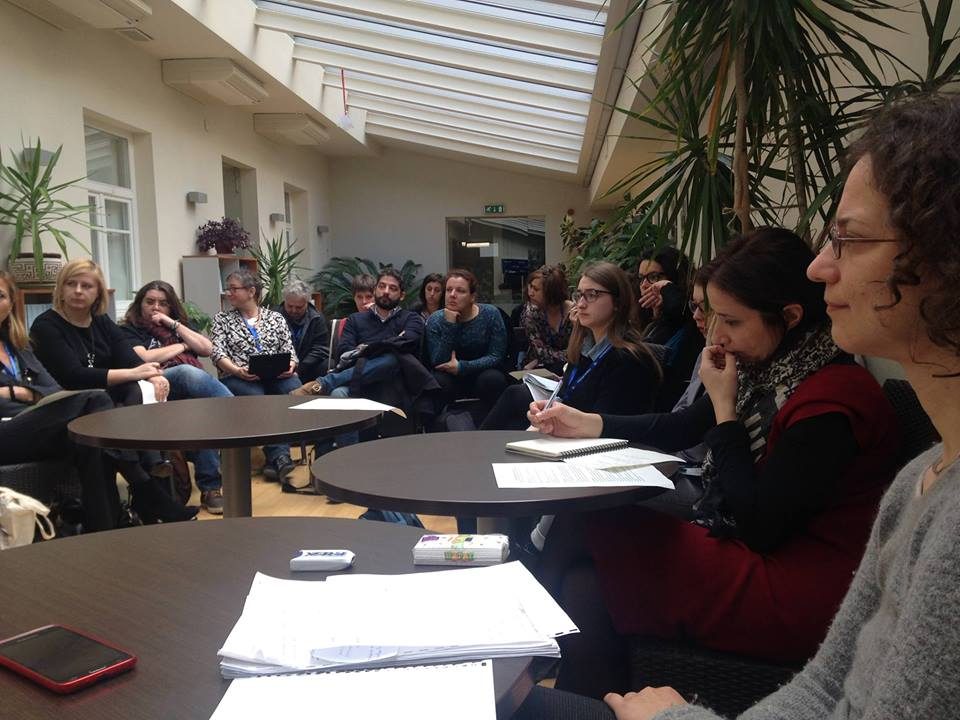Workshop “Intersectional Research: How to Do It?”
AtGender Spring Conference “Bridging gender research and policy making: missing links, good practices and future scenarios” – Vilnius, Lithuania, 19-21 April 2017
Thursday 20th April, 9:00 – 11:30
Library Room “Winter Gardner”- IIRPS Institute of International Relations and Political Science, Vilnius University. Address: Vokieciu str. 10
Organizers:
Sabrina Marchetti and Daniela Cherubini, University Ca’ Foscari of Venice
Participants:
Sabrina Marchetti, Daniela Cherubini (University Ca’ Foscari of Venice)
Giovanna Vingelli (University of Calabria)
Hedvika Janekova (EIGE)
Hana Hašková, Alena Křížková, Kristyna Šeflová (Czech Academy of Science)
Aims & contents:
This workshop wants to offer the opportunity to share open questions, methodological instruments and ideas amongst feminist scholars that are working along the lines of intersectionality on various topics and different disciplines, with a balance between quantitative and qualitative research approaches.
Since the insurgence of the debate around ‘intersectionality’, and more recently with its popularisation in European academia and policy-making, several scholars from different fields have declared their adherence to the tenets of this approach. However, great work still needs to be done when it comes to how to proceed with the making of an ‘intersectional research’.
Participants are invited to share their research experience, to draw on concrete examples and on their current or past empirical work, and to engage with some main questions for the debate:
How have you used the intersectional approach in your research? Given the complexity of the theoretical debate around intersectionality, and the heterogeneous views that exist therein, how do you navigate through it and how you make sense of your position within the debate?
Which methodological challenges have you met and how you addressed them? E.g. tools and techniques you used, “lessons learnt” in the making of intersectional research, limits and open questions for further methodological inquiry…
What are the best ways to gather empirical data, analyse and interpret them within an intersectional frame?
How do we address ‘intersectionally’ the people we interview? And how can the results be interpreted and circulated without losing the ‘intersectional’ character of the collection moment?
How does an ‘intersectional data-set’ look like?
Combining qualitative and quantitative methods in intersectional research: when and how it is worth the effort?
Can intersectional analysis be transnational? Which specific challenges in applying an intersectional approach in comparative social research?


